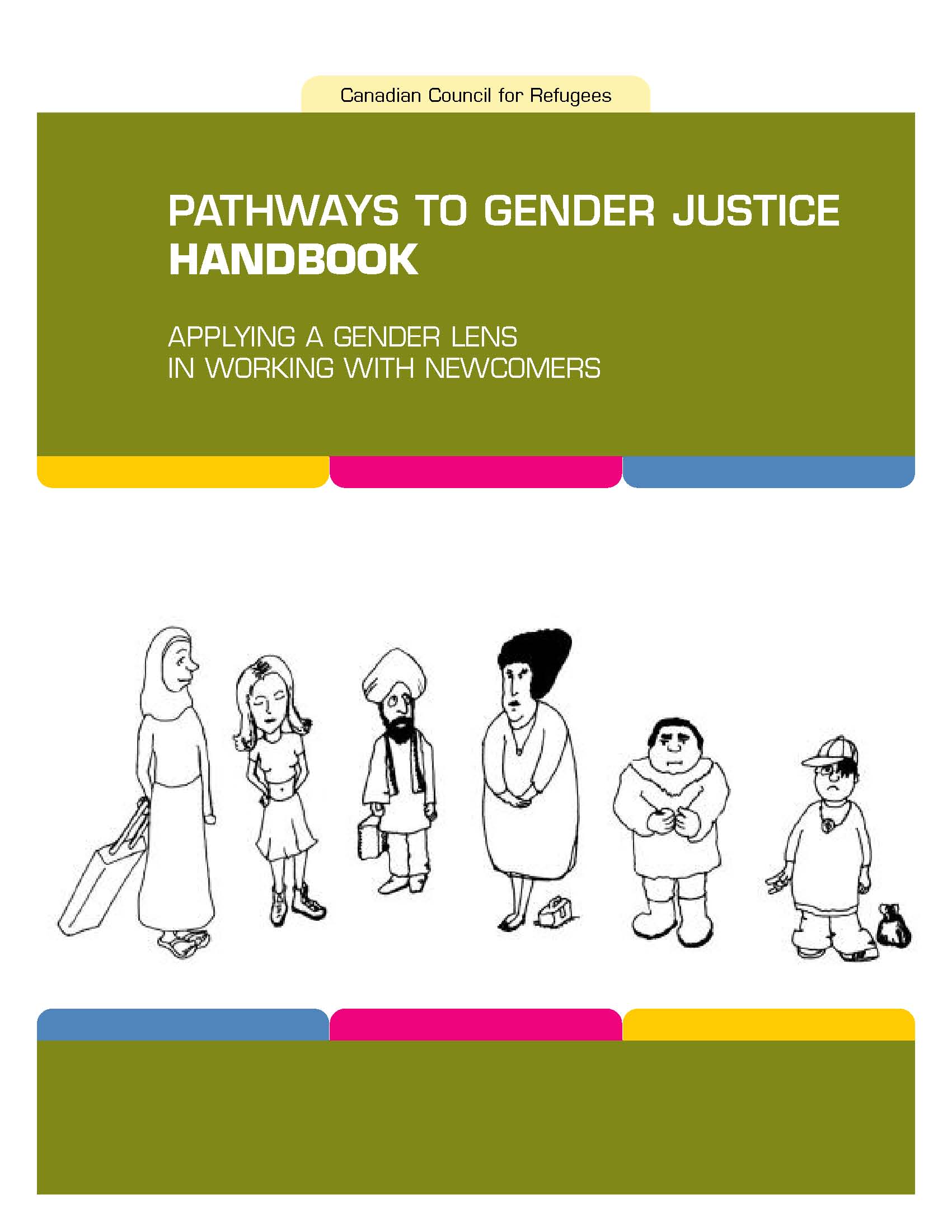Gender Priorities
Key Issues Affecting Newcomer Women and Girls
The CCR has identified several priority issues for advocacy related to gender. These issues are grouped under three broad categories: policy, enforcement and settlement.
Policy issues
- Spousal sponsorship and sponsorship breakdown – Spousal sponsorship can be a vehicle for abuse, because sponsors hold all the power in the relationship. A withdrawal of sponsorship leaves the partner without status and at risk of deportation.
- Parental consent – Women who have been accepted as refugees or permanent residents in Canada and who are seeking family reunification with their children overseas are required to produce a signed consent from the father, or a custody order if the parents have separated. There is no policy to make exceptions in cases of domestic violence, even where the abuse was established in the refugee claim process. As a result, women may need to expose themselves to the risk of further violence in order to request the consent. The children are also negatively affected due to delays and barriers in family reunification – in some cases while waiting they are themselves at risk of parental abuse.
- Refugee claim process: “principal claimant” – When two or more members of a family make refugee claims at the same time, their claims are considered together and one person is identified as the “principal claimant”. In the case of a mixed-gender couple, the individuals themselves, their counsel and decision-makers often default to considering the husband the “principal claimant”. Although under law all claims must be individually assessed, the fact that one family member is identified as the “principal claimant” contributes to less attention being paid to listening to the experiences of women and girls.
- Migrant workers and human trafficking – Closed work permits that tie migrant workers’ status in Canada to a single employer, and the lack of oversight of the Temporary Foreign Worker Program create opportunities for exploitation and trafficking. Caregivers are a highly gendered group that are usually isolated at their employer’s residence, and often excluded from employment standards provisions. Other female migrant workers are also vulnerable to abuse in the workplace or by Canadian partners due to their precarious immigration status.
- Lack of adequate gender impact analysis – the gender impact analysis carried out by the federal government in some cases lacks substance. Immigration, Refugees and Citizenship Canada (IRCC), the Canada Border Services Agency (CBSA) and the Immigration and Refugee Board (IRB) should apply a gender lens rigorously to all policies and protocols.
Enforcement issues – CBSA and IRCC
- Arrest and deportation of women reported by abusive partner – Abusers sometimes report their partner to the CBSA as a way of punishing them. The CBSA’s mandate is to enforce immigration laws, but arresting and deporting women at the request of their abuser makes the CBSA complicit in the abuse.
- Deportation of women before custody issues are resolved – Women are sometimes deported from Canada with no coordination around custody issues, and in disregard for the principles of the Best Interests of the Child.
- Investigations of misrepresentation – In the wake of the welcome repeal of Conditional Permanent Residence, IRCC investigations for misrepresentation in immigration proceedings have been increasing, and seem to be triggered by complaints from sponsoring partners. By launching these investigations without adequate attention to potential issues of spousal abuse, IRCC is complicit in abuse by the sponsor.
Settlement issues
- Gender sensitivity in settlement organizations – There are best practices on awareness of gender issues in settlement agencies, but these tools need to be improved on and generalized throughout the sector. This relates not only to gender sensitivity, but also to an understanding of how gendered power dynamics impact women’s integration.
- Woman-centred settlement programming – there is a lack of programming focused on the needs of refugee women.
- Transphobia – settlement agencies need to look at transphobia within their organizations and structures, and develop strategies (including training) to counter this.
- Trauma-informed approach in settlement work – There is a lack of training, support and resources for settlement workers to recognize trauma and provide the necessary support. People who are experiencing trauma or abuse, including women survivors of gender-based violence, often slip through the cracks and do not receive the services they need as a result.

